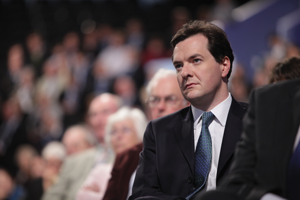Autumn Statement: regional impact
 More capital spending and extra support for business are the main positives from the autumn statement but further cuts are expected in public service budgets.
More capital spending and extra support for business are the main positives from the autumn statement but further cuts are expected in public service budgets.
Northern Ireland is to receive an extra £142 million (including £134 million for capital projects) up to 2015 following the Chancellor’s autumn statement but may lose £150 million in current expenditure. Those reductions are expected in Barnett consequentials i.e. cuts in UK Government departments being matched by the Executive.
The whole UK is expected to experience lower growth in 2012 (0.7 per cent) with the Government borrowing an extra £111 billion over the next five years.
Critically, the Office for Budget Responsibility predicts 710,000 public sector job losses by 2017, up from its last estimate of 400,000. Public sector pay rises will be capped at 1 per cent after the freeze ends in April 2013. A review of regional pay could result in salary reductions and spending cuts will continue to 2017.
However, several announcements will benefit the Northern Ireland economy.
Fuel duty is frozen until next August (when a 3p rise is due). Local businesses can apply for the National Loan Guarantee Scheme, support from the Business Finance Partnership, and the national insurance exemption (which continues up to April 2013). Belfast is one of four cities to share the £100 million urban broadband fund, designed to achieve 80-100 MBps. Six others will be selected in a UK-wide competition.
Sammy Wilson claimed that there would be no compulsory redundancies but said he did not know how many voluntary redundancies would eventually be made. Wilson expected more invest-to-save decisions by ministers and said these had to be looked at “fairly quickly”.
Conor Murphy repeated Sinn Féin’s view that Northern Ireland had to break its dependency by taking on “maximum fiscal powers” and building a strong all-Ireland economy.
Alliance’s Naomi Long asked the Chancellor for action on air passenger duty on regional flights but was referred to the forthcoming UK aviation strategy. Long had wanted to see reduced VAT on renovations, to help the construction sector, but welcomed the moves to release credit to small businesses. However, she said there was “no serious effort” on pay restraint in company and bank board rooms.
The UUP was supportive and called for realism, but SDLP leader Alasdair McDonnell said that “squeezing” public sector workers “will simply cause pain and hardship for hardworking families and will have a negative impact on businesses here.”
Owen Paterson reiterated his defence of deficit reduction, which was “keeping interest rates lower for longer”. He claimed that the only alternative was “more borrowing and more spending … precisely the something for nothing economics that got our country into this mess in the first place.”
A wider divide opened up between the business and trade union responses.
CBI Director-General John Cridland said the statement “works with the realities of today and provides an imaginative framework”. The CBI in Northern Ireland wants changes in British employment law, including ‘protected conversations’ with older employees, extended to the province.
ICTU Assistant General Secretary Peter Bunting told striking workers that the public sector was “being sacrificed in the name of an ideology which favours the 1 per cent.”




